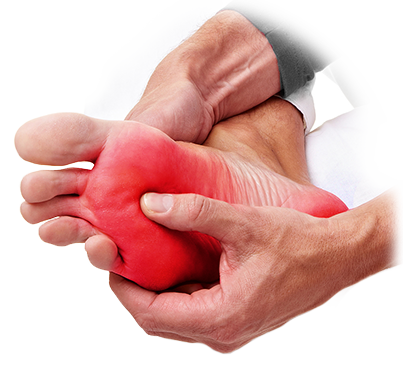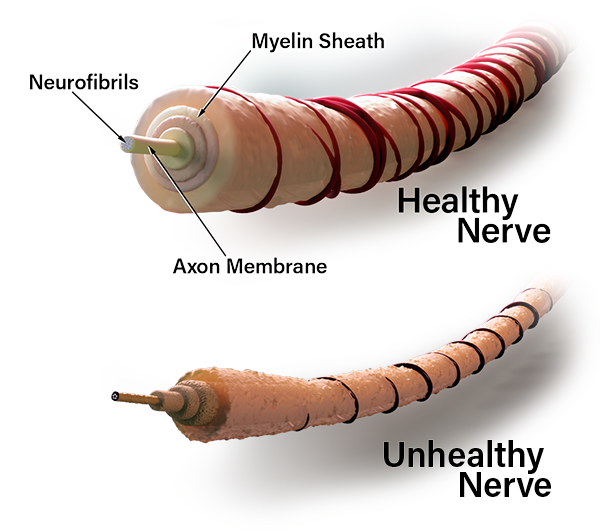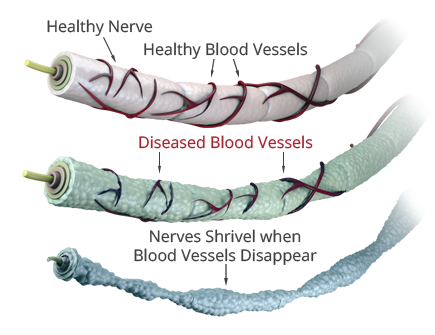
When you lose your feeling in your feet, you lose your independence and freedom. The usual progression is numbness and tingling followed by more numbness and pain and loss of balance.
The Midwest Spine and Nerve Center utilizes multiple therapeutic modalities and techniques to provide long lasting pain relief. Our focus is to provide a non-surgical drug-free method for those suffering from pain associated with diabetic and peripheral neuropathy.

Neuropathy is a condition of the nervous system that typically causes numbness, tingling, burning, aching, and a variety of other symptoms. Many patients also report experiencing restless legs or throbbing, cramping pain in their hands or feet.
Neuropathy can result from problems such as traumatic injuries, infections, metabolic problems and exposure to toxins. One of the most common causes is diabetes.
Poor blood circulation may also be a major contributing factor that leads to neuropathy. Diabetics are especially susceptible to neuropathy due to the damage high sugar levels may inflict on the small vessels responsible for delivering blood to the nerves. High glucose levels are believed to adversely affect the amount of oxygen provided to the nerves thus leading to neuropathy.
Peripheral neuropathy is a condition that develops as a result of damage to the peripheral nervous system - the vast communications network that transmits information between the central nervous system (the brain and spinal cord) and every other part of the body.
Peripheral neuropathy distorts and sometimes interrupts messages between the brain and spinal cord and the rest of the body.
It is estimated 20 million people in the United States have some form of Peripheral Neuropathy.

Peripheral neuropathy can result from problems such as traumatic injuries, infections, metabolic problems and exposure to toxins. One of the most common causes is diabetes.
Poor blood circulation may also be a major contributing factor that leads to neuropathy. Diabetics are especially susceptible to neuropathy due to the damage high sugar levels may inflict on the small vessels responsible for delivering blood to the nerves. High glucose levels are believed to adversely affect the amount of oxygen provided to the nerves thus leading to neuropathy.
Neuropathy is a progressive condition, meaning it tends to get worse with time. If left untreated for too long, the nerve damage can reach a point where there is simply nothing that can be done. This is why early detection and treatment of peripheral neuropathy is critical to getting the best results.
"Dramatically Reduced the Pain!"
"I have Peripheral Neuropathy from chemotherapy treatments. I’ve been going to a pain clinic once a month. I was trying to find an alternative to the drugs as they made me tired all of the time and I didn’t want to live my life that way. One day I was reading the paper, when I came across an ad in the paper for your clinic. I thought why not give it a try. I had nothing to lose."
"The treatments have dramatically reduced the pain in my feet and hands. The staff has been wonderful and very supportive in helping me deal with my problem." - Scott - Pardeeville, WI
Our Goal For you
Help relieve the peripheral neuropathy pain symptoms you are experiencing. Most patients begin to sleep better, walk with ease, return to normal activities and start enjoying their lives again!

©2026 Midwest Spine and Nerve Center. All Rights Reserved. | Legal Notes | Privacy Policy